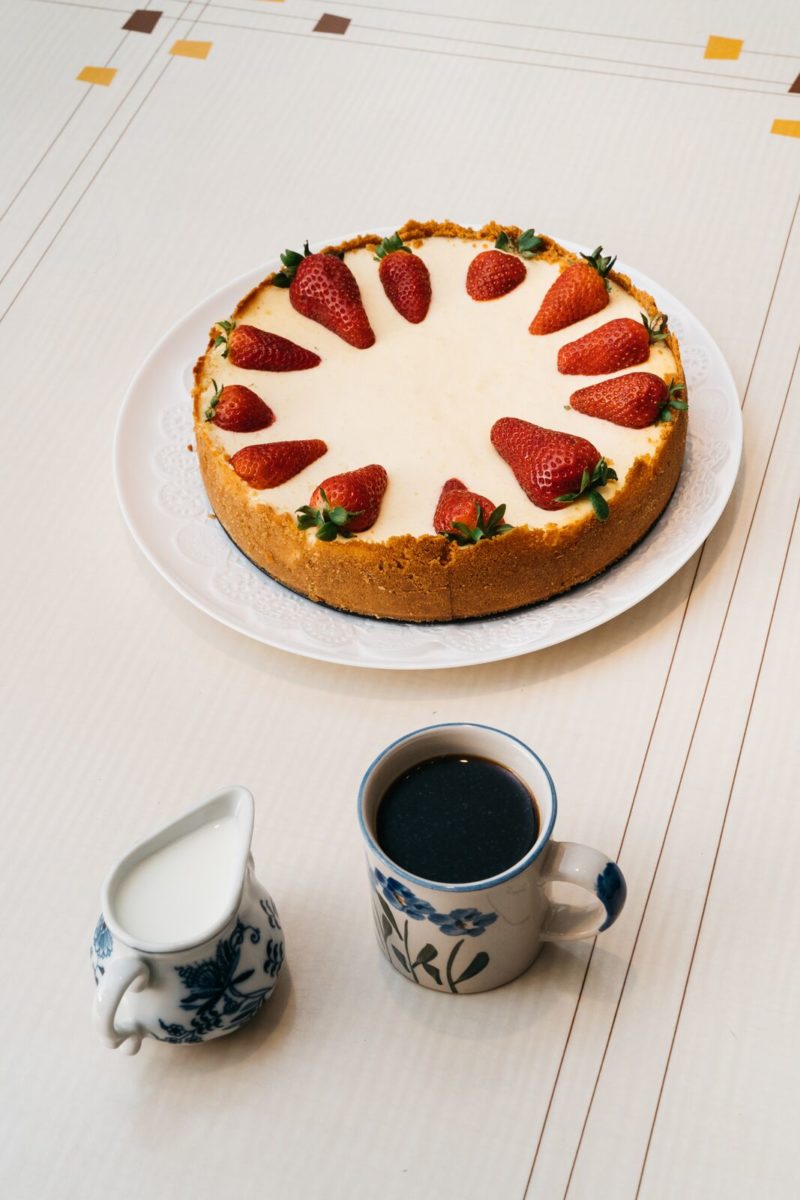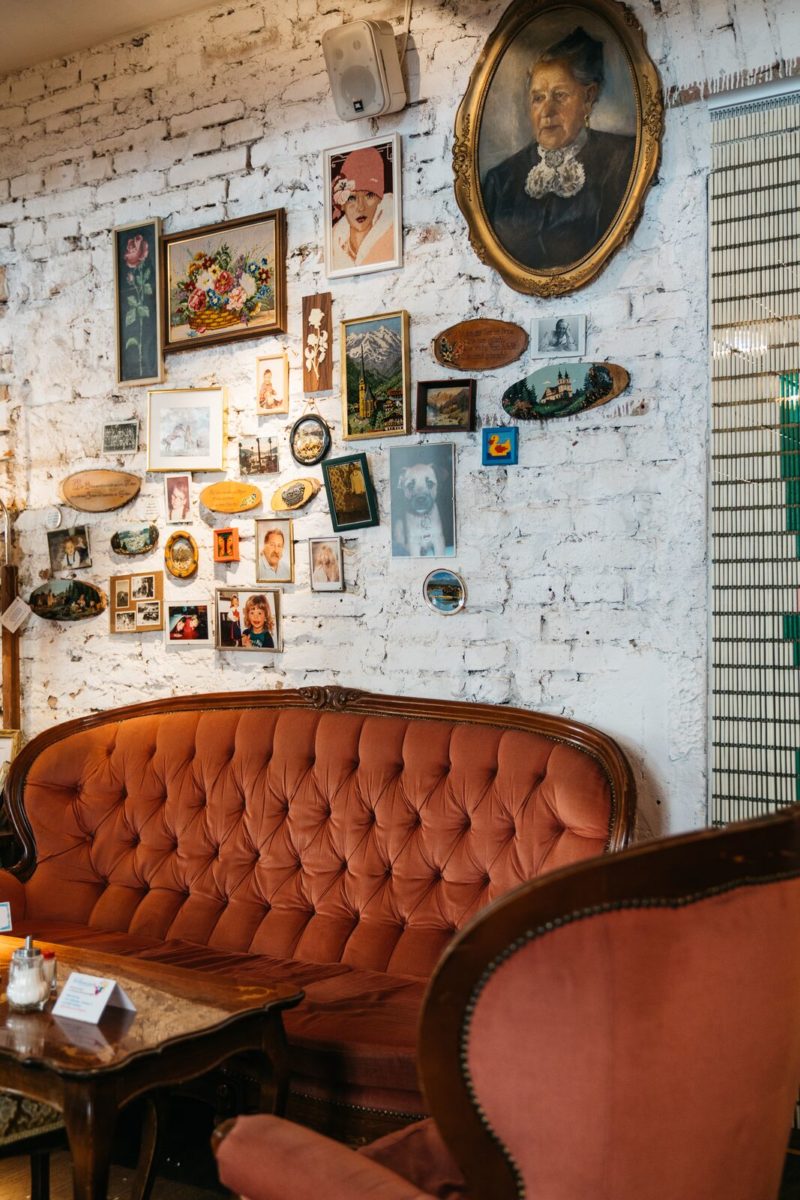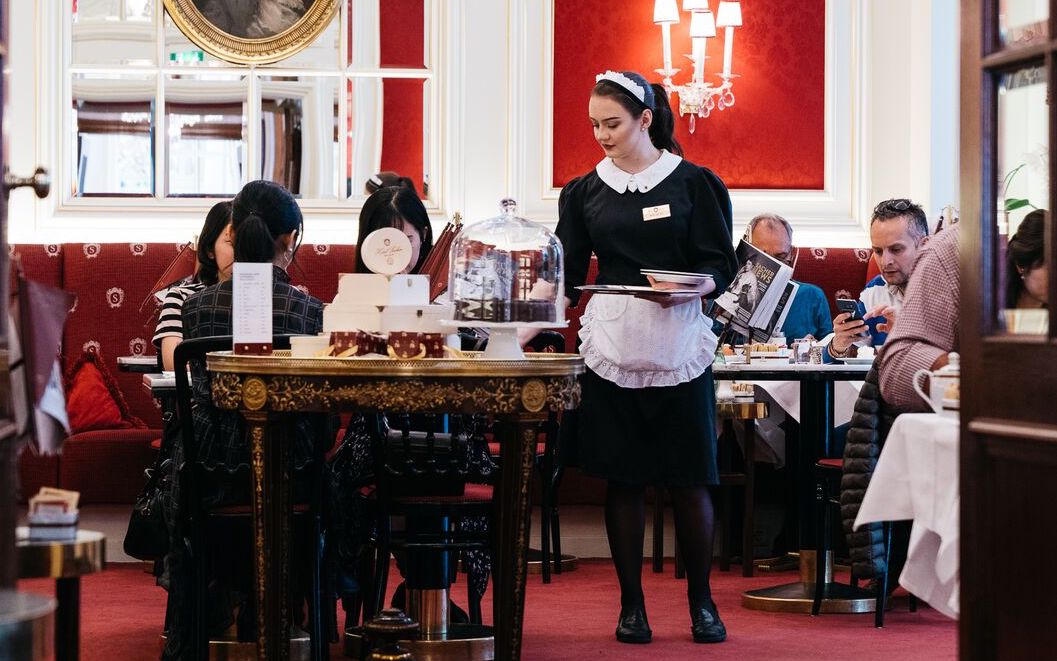Royal regulars may be a thing of the past, but within Vienna’s coffee shops, a few constants endure. Creatives still brew new ideas over espresso; neighbors still stop by to linger with old friends and nibble on a slice of freshly baked cake. While the clientele may have changed over the years, today’s coffeehouse culture in the Austrian capital soothes the soul in a way that’s uniquely Viennese.
No doubt Café Sperl is steeped in history, having counted the likes of Archduke Joseph Ferdinand among regulars in the past. Since 1880, artists, writers, and musicians have been sharing coffee, cake, and ideas here as waiters dash across the polished parquet floors. The café landed in the hands of the Staub family in 1968, and as other traditional Viennese coffee shops folded, Sperl soldiered on. Owner Monika Staub, 78, knows that traditional cafés have to keep up with the times to stay in business, but she herself has no trouble keeping up with the lunch rush. Most days you’ll find her directing a delicate culinary ballet in the kitchen, where everything from the crispy Wiener schnitzel to the buttery Apfelstrudel is prepared in-house daily—“No dusty cakes,” says Frau Staub.
In the heart of the Seventh District, Kaffemik injects the city’s staid coffee scene with some fresh flavor. The tiny six-seat establishment sits around the corner from a certain Seattle-based coffee company’s sprawling outpost, but owner Simon Huber says there’s really no competition: “They only see their guests once,” he says, noting its popularity with tourists. It’s all about the coffee at Kaffemik, where Huber is especially proud of his curating concept. Beans—Arabic, Ethiopian, Colombian, French—from a diverse selection of primarily European roasteries cater to specific customer tastes by category: Beauty, Beast, Bastard, Boy,
and Bargain.
Hannah Lux, 30, wanted to create a space where people from different generations would be able to connect. Her coffee shop, Vollpension, sets the standard for good, honest baking—you know, the kind of confections your grandmother whips up with a few eggs, sugar, and flour—with a business model to match. Enter a group of women affectionately named “Grannys,” who enthusiastically bake their favorite cakes for patrons lined up out front. “Most of the Grannys are living alone, and I think what’s most important is that they feel part of a community,” says Lux. “This is paid work, not charity.” Lux explains that Grannys work five-hour shifts no more than twice a week. Judith Siöberg, 69, has been working at Vollpension for three years, using recipes she’s had for more than four decades. “I just love baking,” she says, “and working together with young people—it just lights up your life.”
Tucked within the lavish Hotel Sacher, this café is the so-called “birthplace of cake”: the home of the glossy chocolate confection with an imperial pedigree known as the Sacher torte. The surroundings are appropriately indulgent, and there’s a sunny patio for fairer weather. Guests chatter softly as silver spoons clink on china emblazoned with gold lettering, and the smell of coffee wafts through the air. On warm evenings, the nearby Vienna State Opera opens its rear windows, sending the sounds of the rehearsing orchestra down the streets of the First District.









